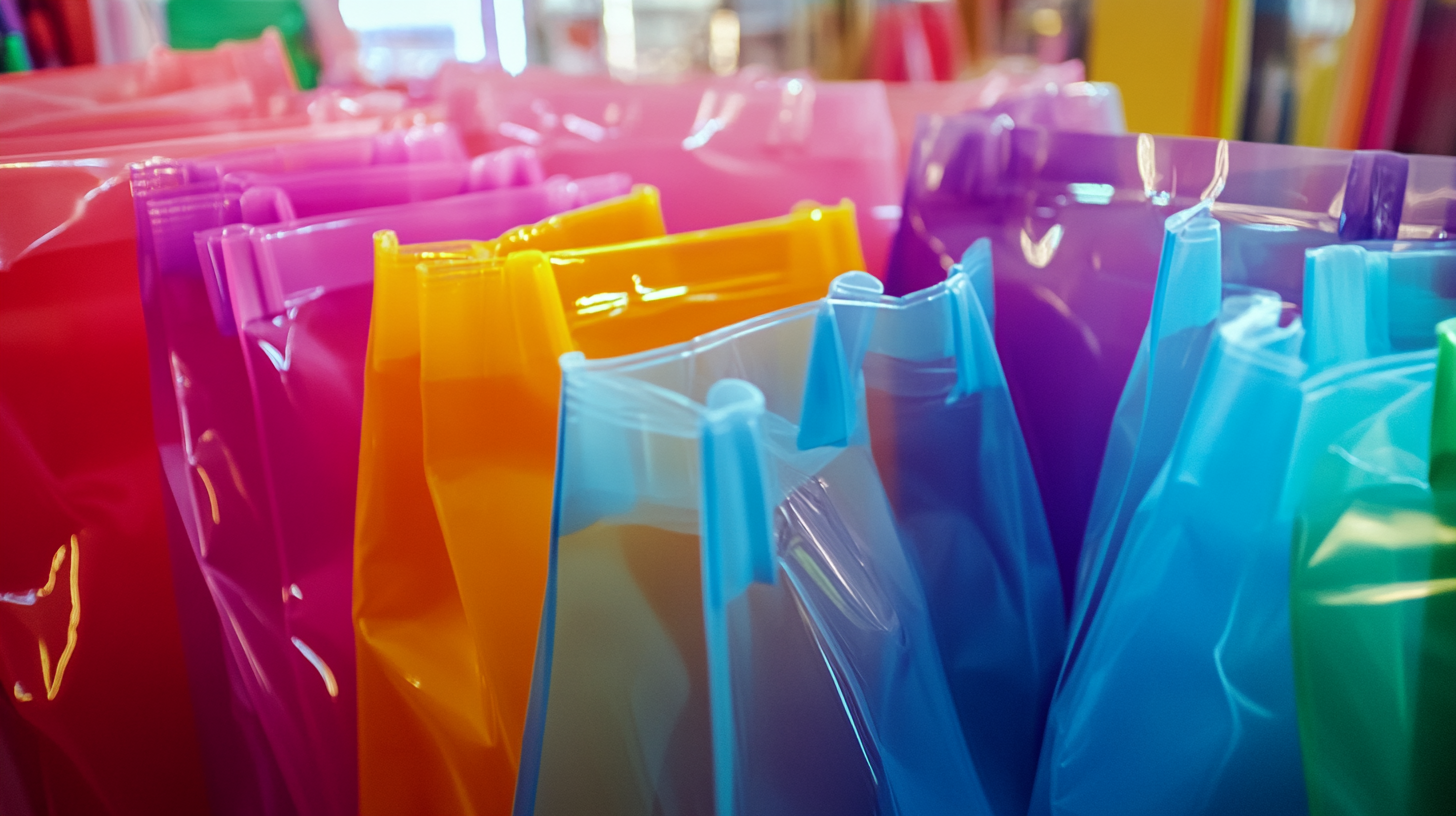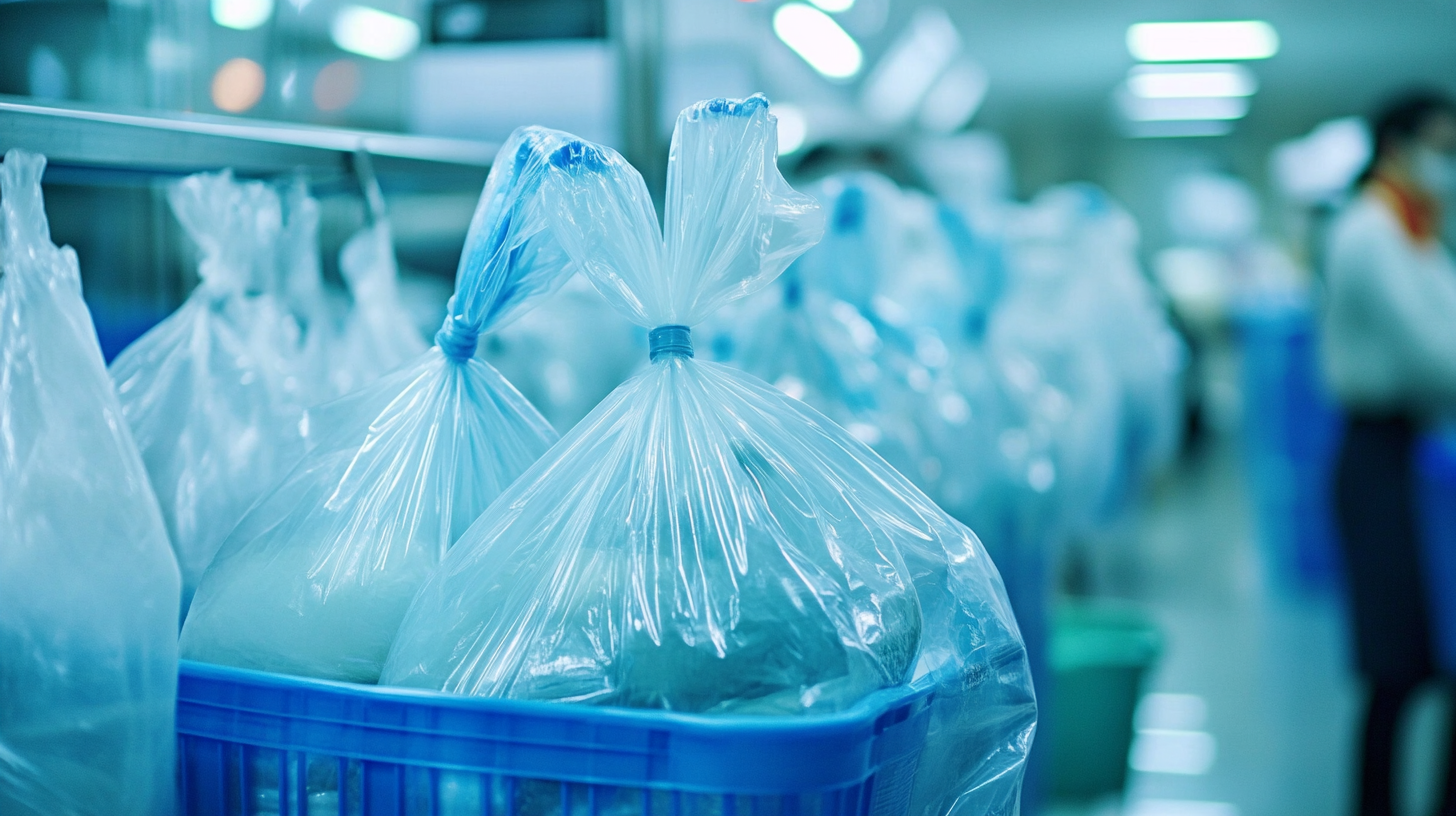- Phone:+86 15218629499
- Phone: +86 15766990063
- E-mail: Yzprinting01@163.com
In today's competitive market, businesses are constantly seeking innovative ways to protect their products while minimizing costs. Packing Bag Plastic has emerged as a leading packaging solution, largely due to its versatility and efficiency. According to a recent report from the Plastics Industry Association, the global plastic packaging market is projected to reach a staggering $1 trillion by 2025, highlighting the growing reliance on plastic materials in various sectors. This trend underscores the significance of Packing Bag Plastic in not just preserving product integrity but also in enhancing brand visibility.
Moreover, the sustainability of Packing Bag Plastic continues to evolve, with new advancements in recycling and biodegradable options making waves in the industry. The World Packaging Organization indicates that more than 60% of consumers prefer brands that utilize environmentally friendly packaging, signaling a vital shift towards sustainable practices. By choosing Packing Bag Plastic, businesses can not only meet consumer expectations but also capitalize on the unique advantages this packaging solution provides. In this blog, we will explore the seven key advantages of using Packing Bag Plastic for your product needs, demonstrating its importance in today’s packaging landscape.

When it comes to packaging products securely and efficiently, durability is a crucial factor, and plastic packing bags stand out in this regard. Unlike traditional paper or biodegradable materials, plastic bags offer superior resistance to wear and tear, moisture, and punctures. This makes them an ideal choice for businesses that need to store and transport products in various conditions. Whether it's food items, retail goods, or industrial products, plastic packing bags shield the contents from external elements, ensuring they remain intact until they reach their destination. Moreover, the longevity of plastic bags means they can be reused, providing an additional layer of sustainability. Businesses can benefit from their robust construction, as these bags can often withstand multiple handling processes without compromising their integrity. This not only reduces the need for frequent repackaging but also lowers overall material costs. As companies increasingly face demands for both functionality and environmental responsibility, choosing plastic packing bags can align with both objectives while minimizing waste associated with less durable materials. In addition to their reliability, plastic packing bags are lightweight, allowing for lower shipping costs and easier handling. Their flexibility and adaptability to various shapes and sizes further enhance their usefulness across countless industries. With their ability to maintain high performance under various conditions, it's clear why plastic packing bags are a preferred option for those prioritizing durability in their packaging solutions.

When it comes to packaging solutions, cost-effectiveness is a top priority for businesses looking to optimize their operations and reduce expenses. Plastic bags have emerged as a favorite choice across industries, largely due to their affordability. According to a report by Grand View Research, the global plastic packaging market is expected to reach USD 1 trillion by 2024, indicating that businesses are increasingly recognizing the cost benefits associated with using plastic materials.
One of the most compelling advantages of packing bag plastic is its lower production costs compared to other packaging options like paper or metal. For instance, plastic bags can be produced at a fraction of the cost, enabling companies to save significantly on their packaging expenses. The industry has seen the price of plastic resin decrease by about 10% in recent years, largely due to advancements in manufacturing processes and increased competition. This reduction in raw material costs means businesses can expect to lower their overall packaging budget while maintaining quality.
Additionally, plastic bags are lightweight and take up less space, further driving down shipping costs. According to a study published by PlasticsEurope, switching to plastic packaging can reduce transport costs by up to 30%, as the lower weight translates to more efficiency in logistics. By adopting plastic bags for product packaging, businesses not only save money but also contribute to a more efficient supply chain, maximizing overall profitability while meeting the demands of the modern market.

When it comes to product packaging, choosing plastic packing bags offers significant advantages, particularly in terms of design versatility. The ability to customize these bags not only enhances branding efforts but also allows businesses to create a unique identity that resonates with consumers. According to a report by Smithers Pira, the global flexible packaging market is projected to reach $300 billion by 2025, with plastic packaging leading the charge due to its adaptable properties.
Customization options for plastic bags are practically endless. Companies can incorporate various printing techniques, such as flexography or digital printing, to showcase their logos and marketing messages effectively. This flexibility is a key driver in the consumer goods sector, where visually appealing packaging plays a critical role in attracting customers. A survey by Mintel found that 76% of consumers are influenced by packaging design when making purchasing decisions, illustrating the importance of investing in high-quality, customizable packaging solutions.
Moreover, plastic packing bags are not only versatile in design but also practical in functionality. They can be tailored to fit various product types, ensuring protection while also being lightweight and cost-effective. With the rise of e-commerce, where item presentation matters now more than ever, businesses can leverage custom plastic packing bags to stand out in a crowded market. Hence, the combination of aesthetic appeal and functional benefits positions plastic packing bags as a smart choice for businesses looking to innovate and elevate their brands.

As the demand for sustainable packaging solutions grows, innovations in eco-friendly plastic bags are transforming how companies approach their product needs. Traditional plastic bags have long been criticized for their environmental impact, but advancements in material science have led to the development of biodegradable and compostable options. These new types of packing bag plastics are designed to break down more quickly in natural environments, significantly reducing landfill waste and pollution.
Additionally, eco-friendly plastic bags are increasingly being manufactured from recycled materials, helping to conserve resources and minimize carbon footprints. Brands are not only opting for green materials but are also enhancing the overall packaging experience. Many companies are now utilizing stylish designs and informative labeling that communicate their commitment to sustainability, making it easier for consumers to make responsible choices. This shift not only caters to environmentally conscious customers but also helps build brand loyalty and a positive reputation.
With the rise of regulations surrounding single-use plastics, innovative packing bag plastics are becoming a necessity rather than a choice. These advancements highlight the importance of sustainability in product packaging and demonstrate that businesses can meet consumer needs while also caring for the planet. As more companies embrace these eco-friendly solutions, the industry is likely to witness a significant reduction in environmental impact, paving the way for a greener future.
When it comes to packaging solutions, packing bag plastic stands out due to its remarkable ease of use. With the fast-paced nature of modern commerce, businesses require packaging that simplifies their logistics processes. Plastic packing bags provide an efficient means for packing and transporting products, enabling companies to streamline their operations. The lightweight yet durable nature of plastic bags allows for easy handling, ensuring that items can be packaged quickly without compromising on safety.
Moreover, the flexibility of plastic packing bags enhances their convenience during transportation. Unlike rigid containers, these bags can conform to various shapes and sizes, making it simpler to maximize storage space during shipping. Businesses can easily fit more items into a single delivery, reducing transportation costs and increasing efficiency. The ease of sealing and opening these bags also facilitates quick access and inventory management, a crucial aspect for retailers and wholesalers alike.
In addition, the transparency of many plastic packing bags allows for immediate visibility of contents, eliminating the need for additional labeling and speeding up the sorting process. This feature not only simplifies logistics but also improves customer satisfaction through efficient order fulfillment. Overall, choosing plastic packing bags means investing in a packaging solution that prioritizes convenience, efficiency, and adaptability, addressing the evolving needs of businesses today.
